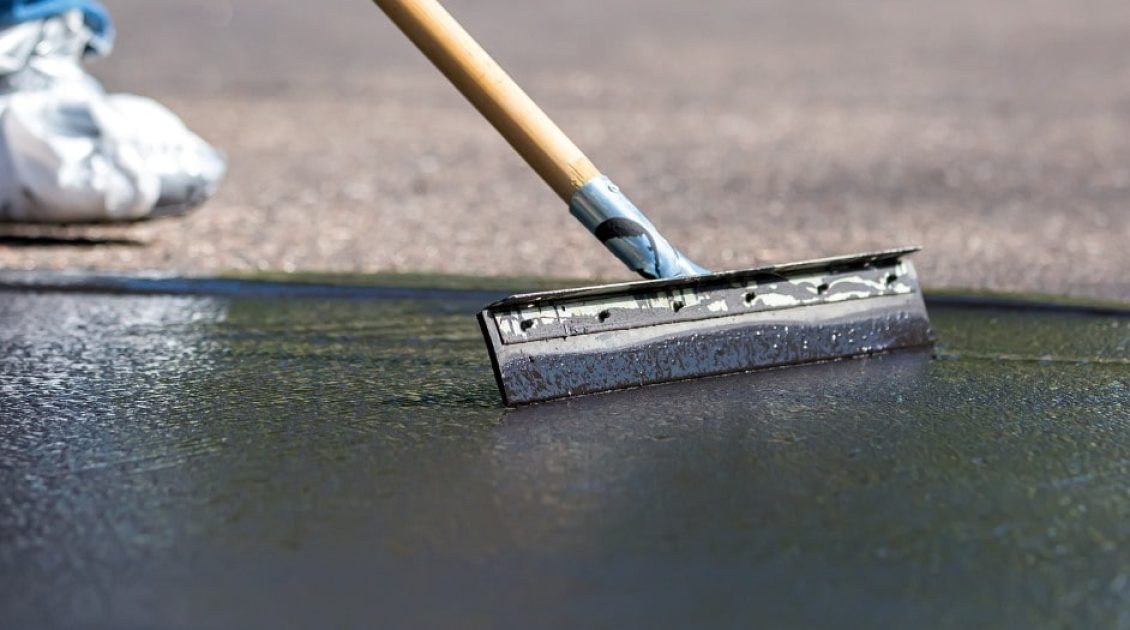
When it comes to installing a new driveway, one question we hear often is: How thick should an asphalt driveway be? The thickness of the asphalt you use will directly affect its durability, longevity, and how well it handles everyday use. Whether you’re a homeowner replacing an old driveway or a property manager planning a commercial lot, getting the thickness right is crucial.
In this blog, we’ll cover everything you need to know about asphalt driveway thickness, and what’s recommended for residential and commercial use, how thickness affects longevity, and why hiring a professional matters.
What’s the Recommended Thickness for Residential Driveways?
For most residential asphalt driveways, the recommended minimum thickness is 2 to 3 inches after compaction. However, this often involves two layers:
- 1.5 inches of base layer
- 1.5 inches of surface or top layer
This structure provides enough strength to support passenger vehicles and occasional delivery trucks. If your home regularly accommodates heavier vehicles, like RVs or trailers, it’s wise to increase the total thickness to 4 inches for added durability.
The quality of the base material beneath the asphalt also plays a key role. A properly compacted gravel base, 4 to 8 inches thick, is crucial for preventing cracks and water damage over time.
Did You Know?
A driveway that’s 1 inch too thin can reduce its lifespan by up to 50%, especially in regions with cold winters and heavy snow removal equipment.
How Thick Should Commercial Asphalt Be?
Commercial driveways and parking lots must endure heavier traffic, including delivery trucks, commercial vehicles, and heavier loads.
For commercial paving projects, the asphalt thickness should be a minimum of:
- 4 inches total, or
- 5–6 inches in areas expecting frequent heavy truck traffic.
This usually consists of:
- 2–3 inches of base course
- 2–3 inches of surface course
In high-traffic areas or places where heavy equipment operates regularly, 6 inches of asphalt or more may be needed to ensure the surface remains stable over time.
A strong granular base layer is even more crucial in commercial settings, often requiring 8 to 12 inches of crushed stone or gravel to accommodate the increased stress.
Why Thickness Matters for Longevity and Performance
Choosing the right asphalt thickness isn’t just about load support. It also impacts:
- Crack resistance – Thicker asphalt better resists cracking caused by freeze-thaw cycles.
- Lifespan – A driveway with the right thickness can last 15–25 years with proper maintenance.
- Drainage – Correct grading and thickness help avoid water pooling, which can weaken asphalt over time.
- Cost savings – Investing in the correct thickness up front reduces the need for premature repairs or resurfacing.
Keep in mind that skimping on thickness to save money can backfire quickly. Thin asphalt tends to crack sooner, develop potholes, and deteriorate faster, especially in Ottawa’s freeze-thaw climate.
What Else Affects the Required Asphalt Thickness?

While residential and commercial standards offer a starting point, several other factors should guide the final design:
Soil Conditions
Weak or poorly draining soil will require a thicker gravel base to support the asphalt and prevent future movement.
Climate
Ottawa’s climate includes significant freeze-thaw cycles. This makes proper drainage and extra thickness more important than in milder regions.
Traffic Volume and Weight
More frequent or heavier traffic requires additional thickness to withstand wear and tear.
Paving Material Quality
Not all asphalt mixes are the same. Using high-quality materials enables better compaction and performance, even with standard thickness.
So, How Thick Should an Asphalt Driveway Be?
To recap: Residential asphalt driveways should be 2 to 3 inches thick, while commercial driveways need 4 to 6 inches, depending on load and use. The key to a long-lasting driveway isn’t just the surface—it’s about proper base preparation, quality materials, and correct compaction.
At WCI Ottawa, we’ve spent over two decades delivering paving solutions built to last in Ottawa’s challenging climate. Whether it’s for your home or your business, we take pride in doing it right the first time.
Partner with WCI for Paving that Lasts
Looking for dependable asphalt driveway installation in Ottawa? At WCI Ottawa, we don’t cut corners. We use high-quality base materials, adhere to industry standards, and construct driveways designed to withstand Ottawa’s winters and heavy use. Contact our team today to get a quote or learn more about our full range of paving and concrete services.
Why Choose WCI for Your Next Outdoor Project
When you’re planning a landscape or construction upgrade, WCI Ottawa is your go-to team for seamless outdoor assembly, from patios to fencing and everything in between. Their experienced professionals are ready to help you build smartly and beautifully.
Don’t leave your next project to chance. Contact us today and let the professionals take care of it.





